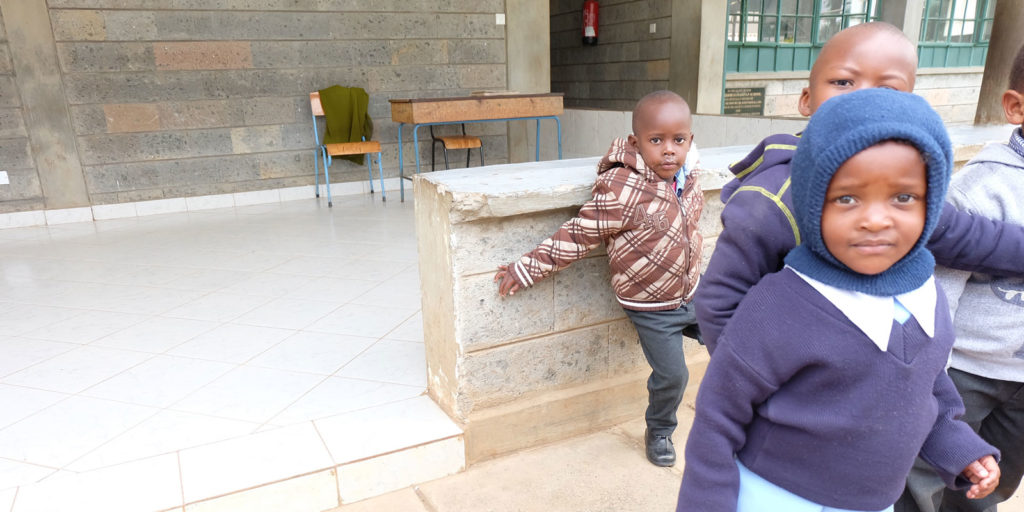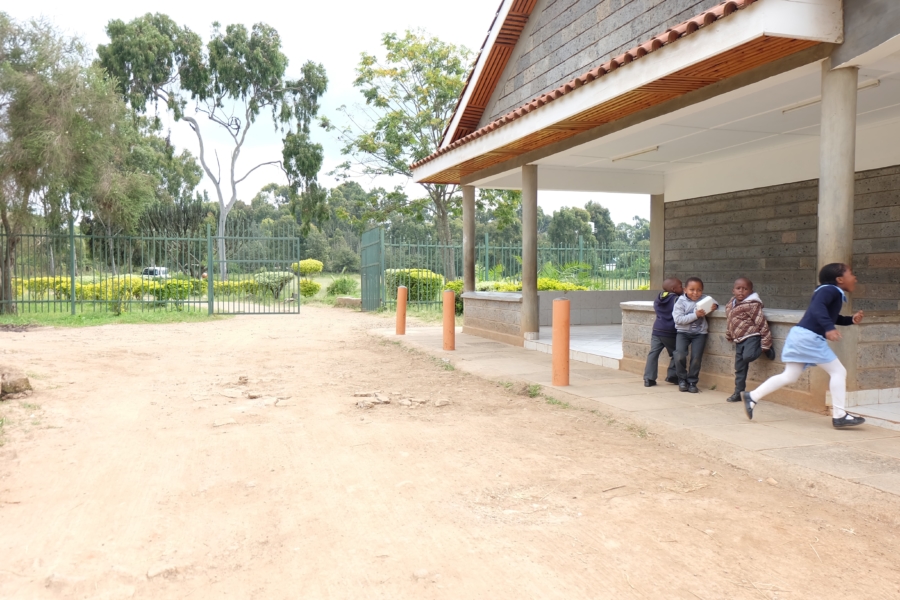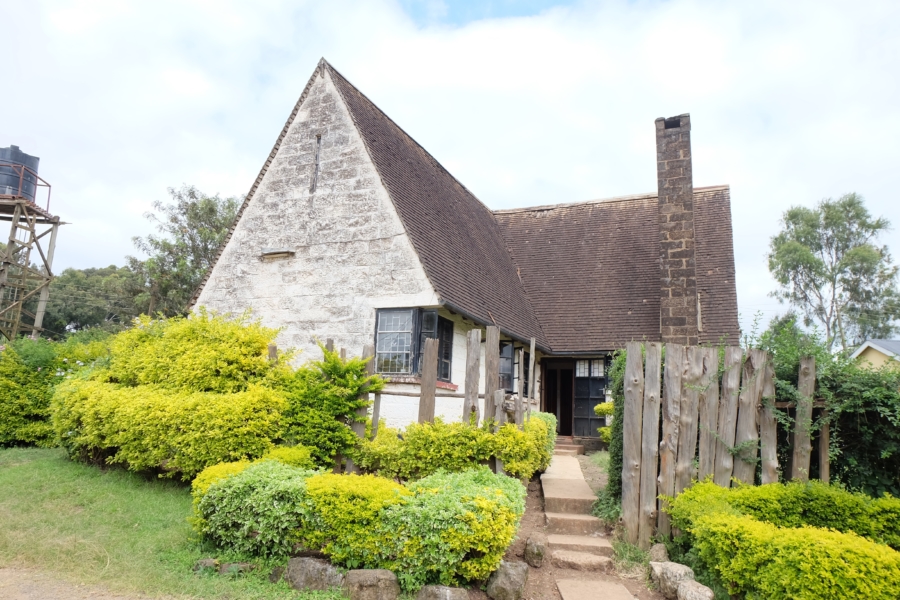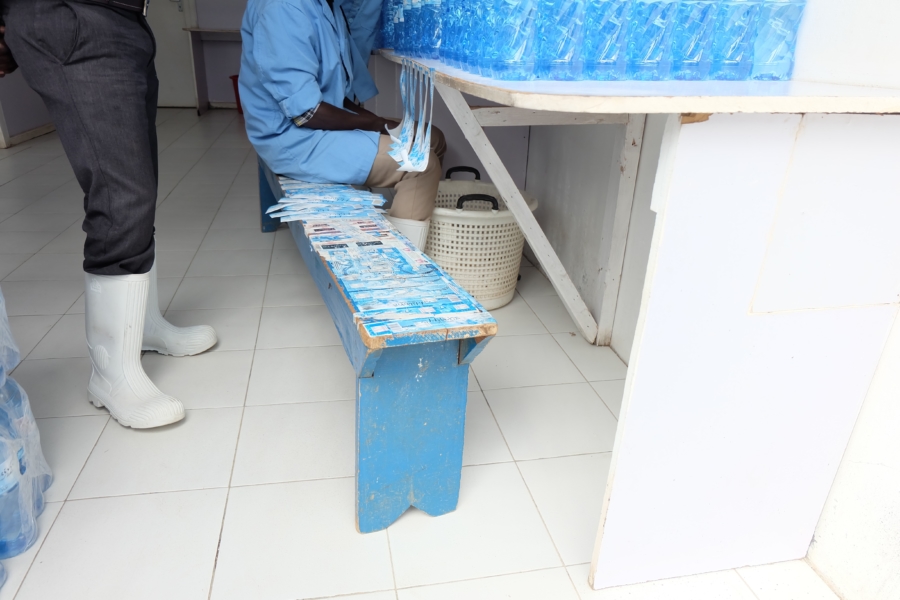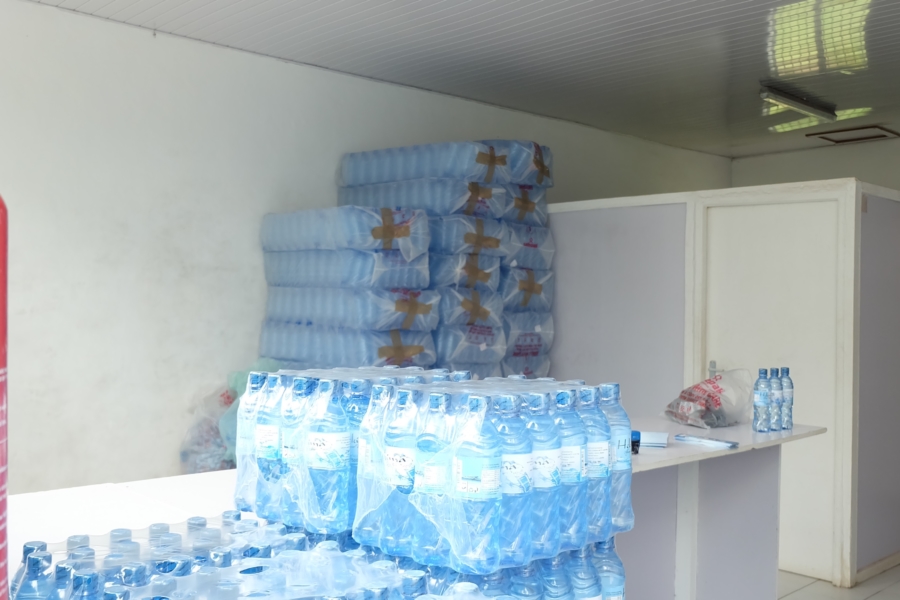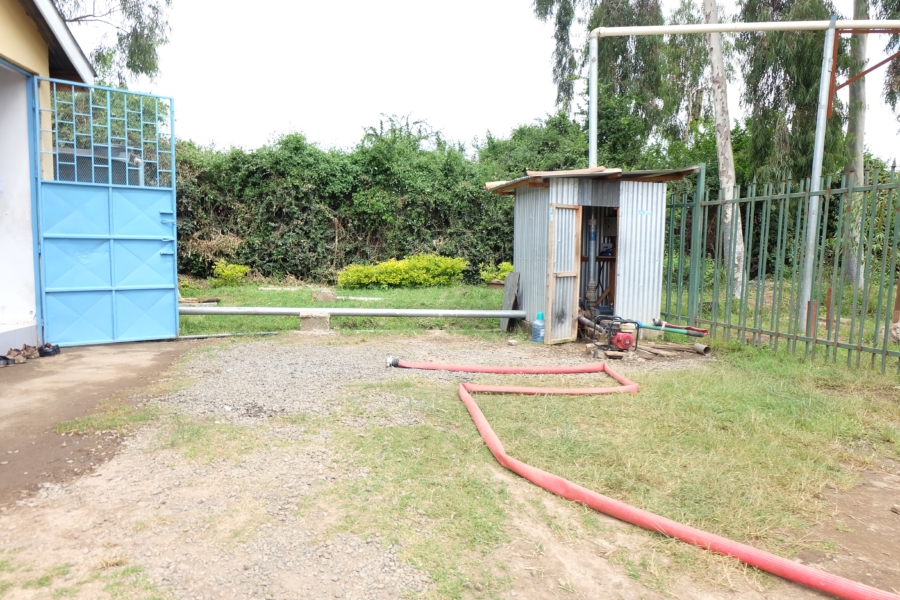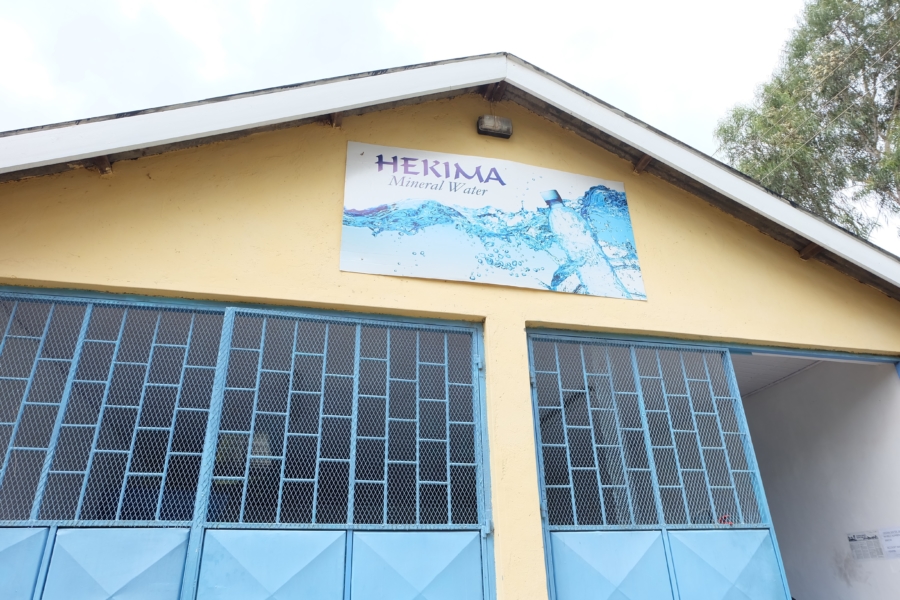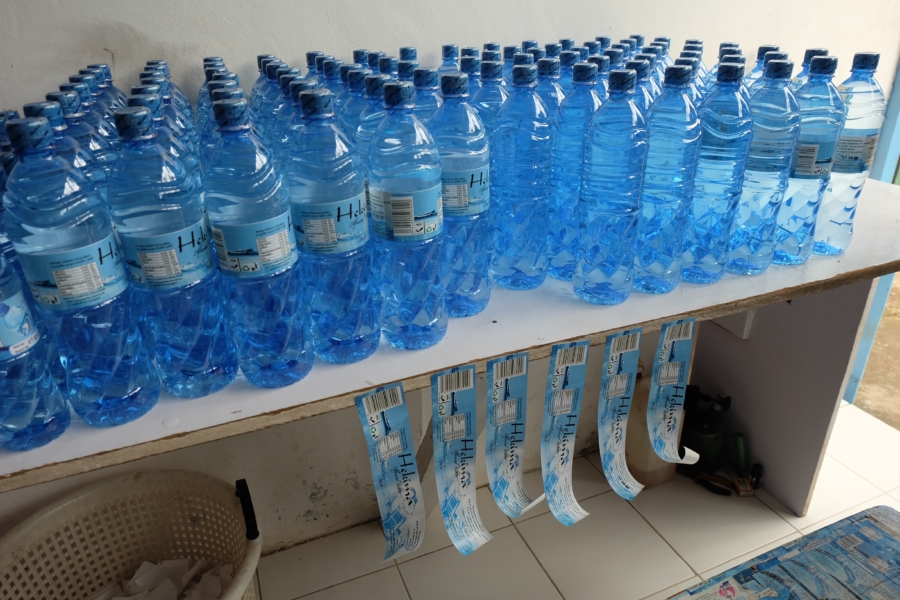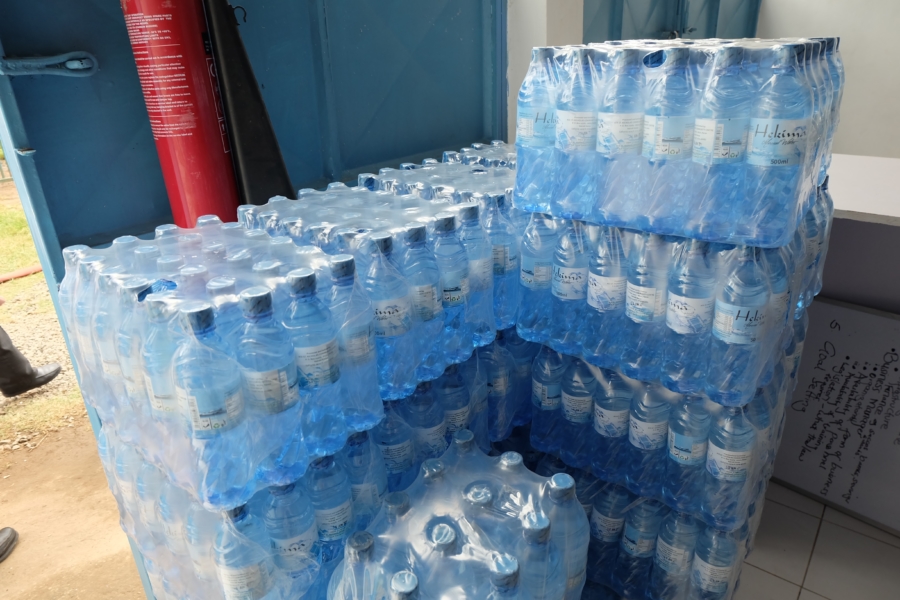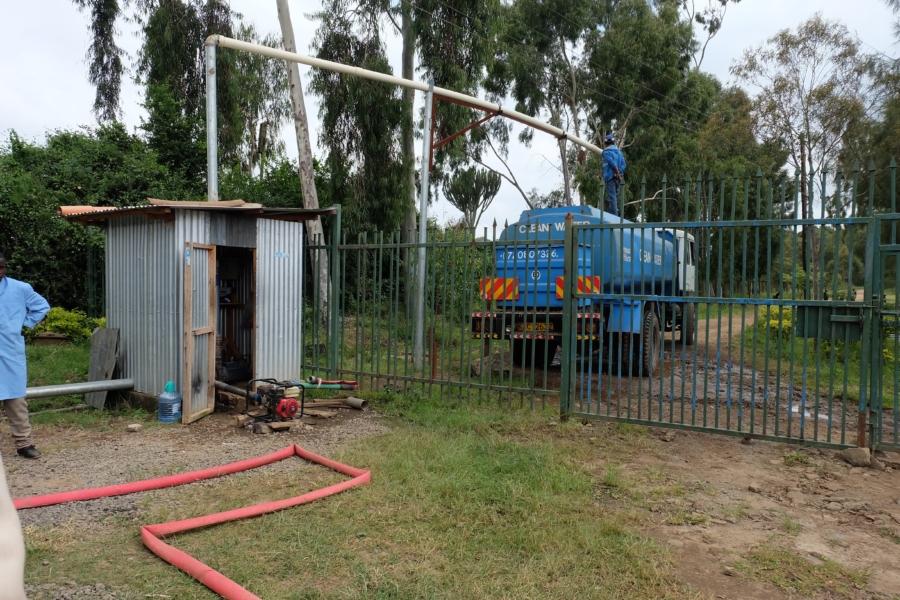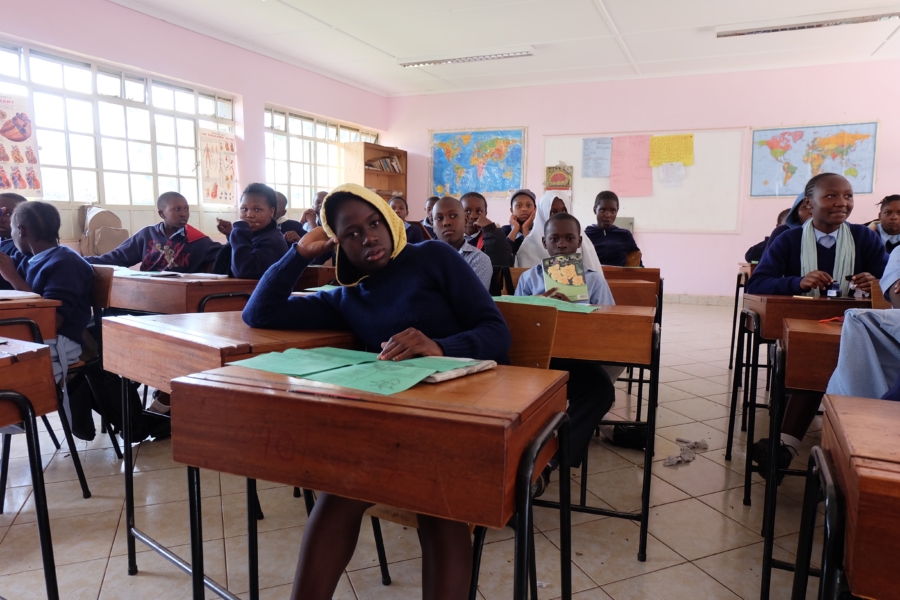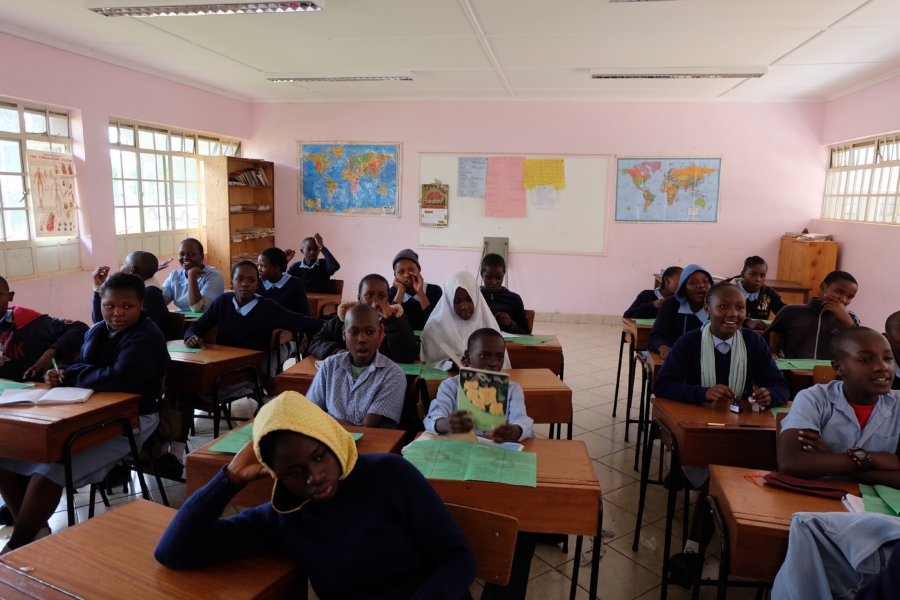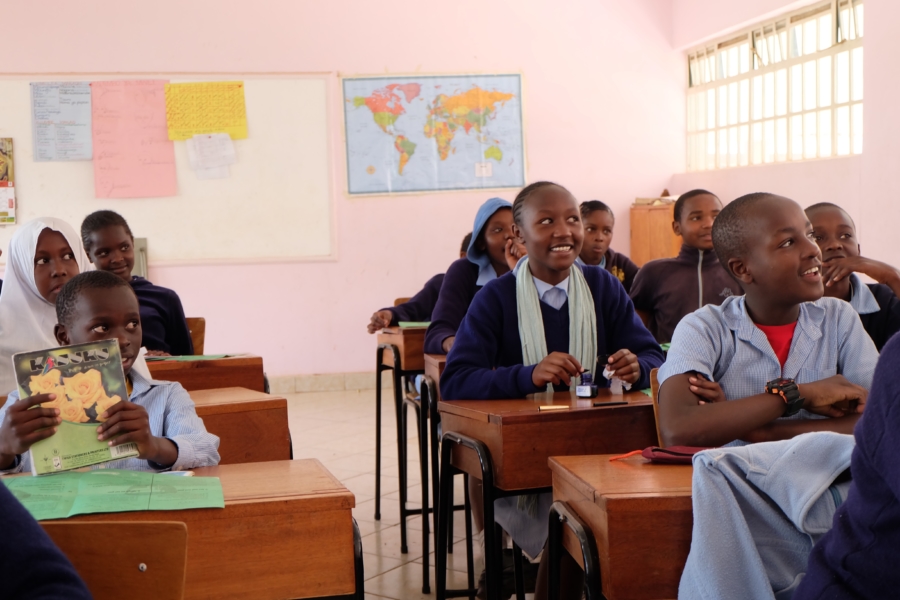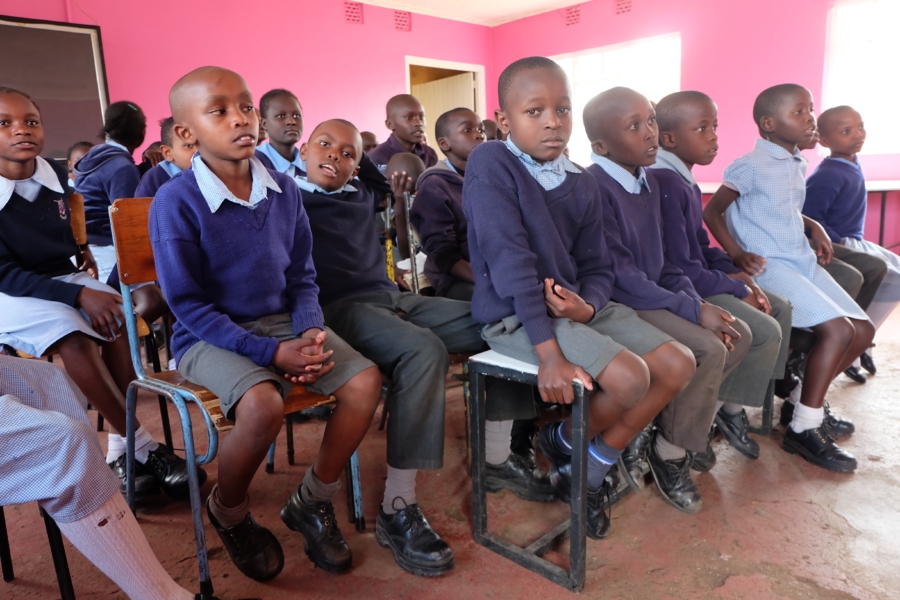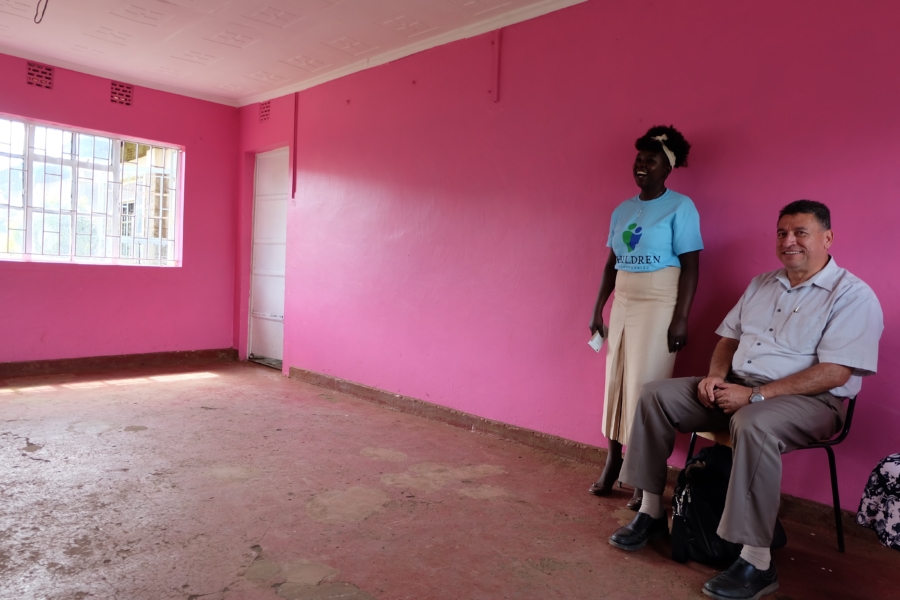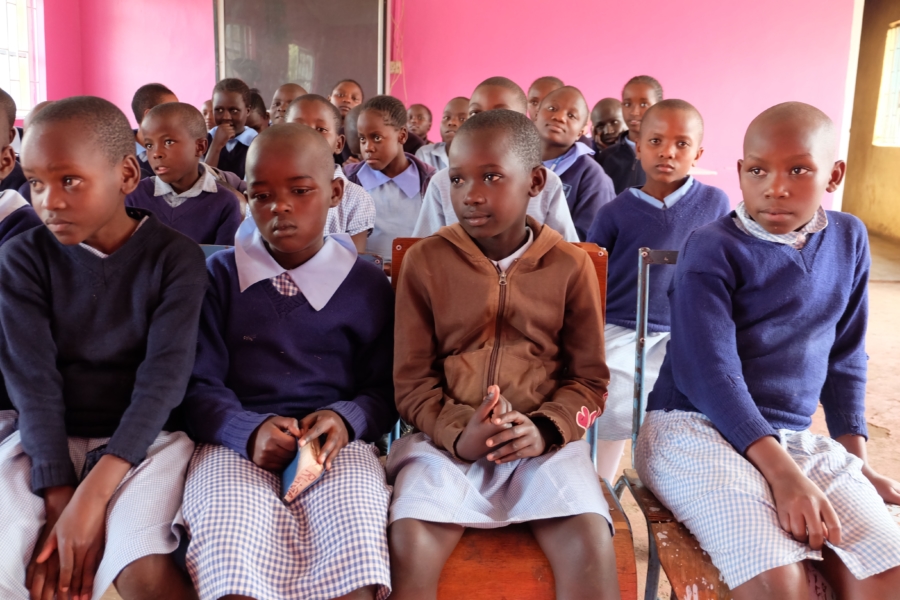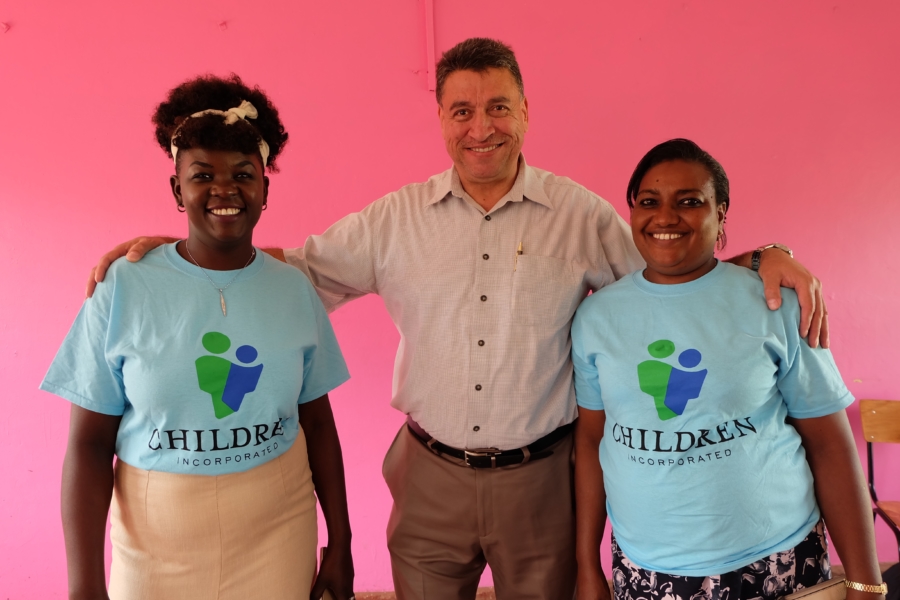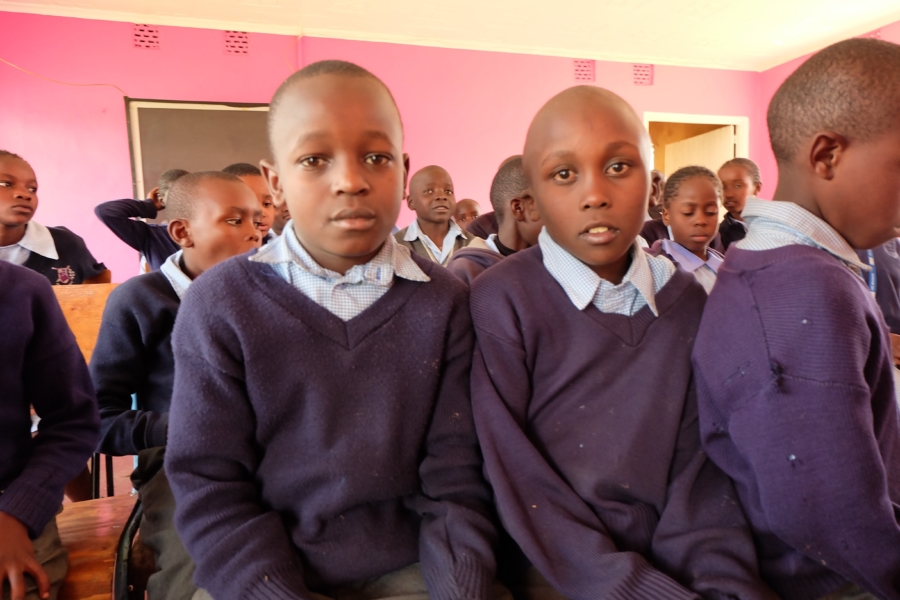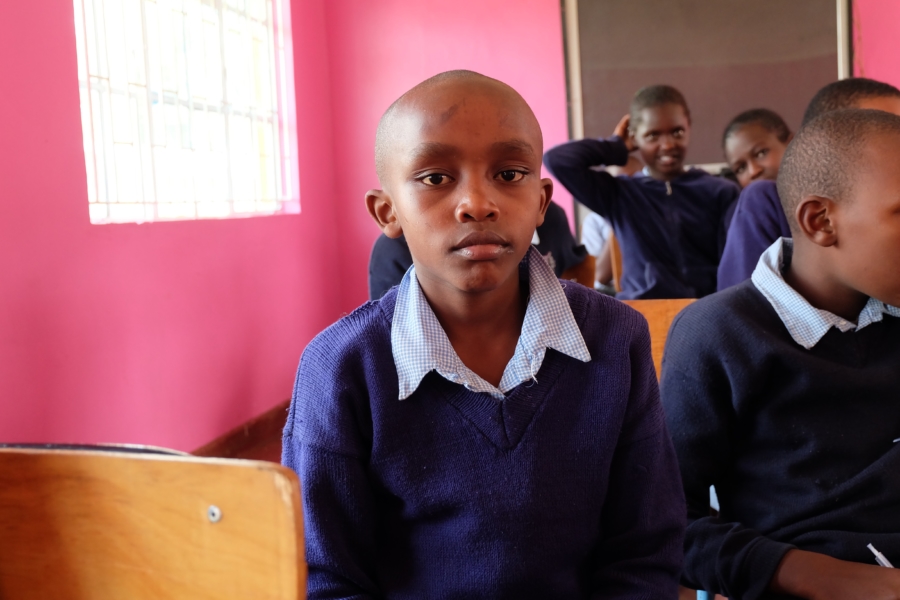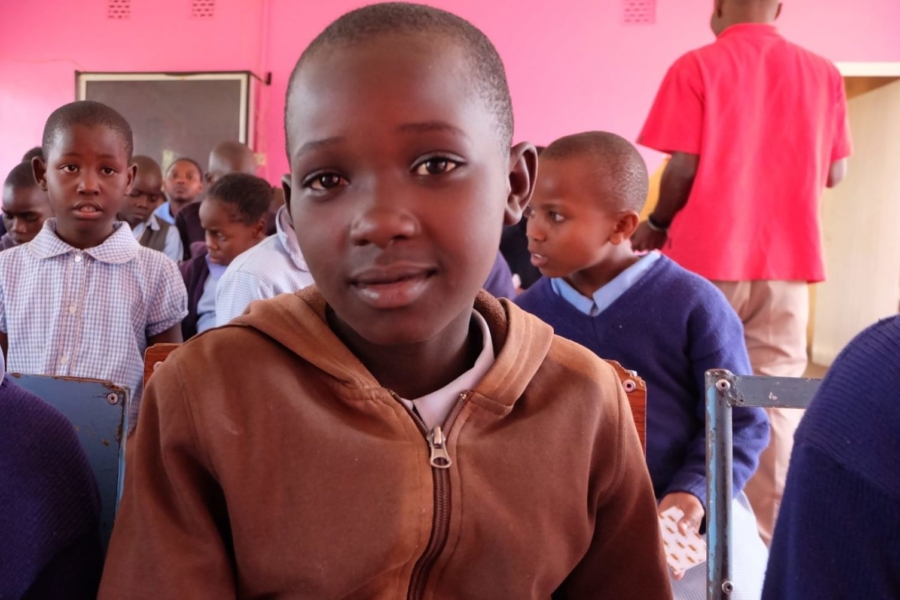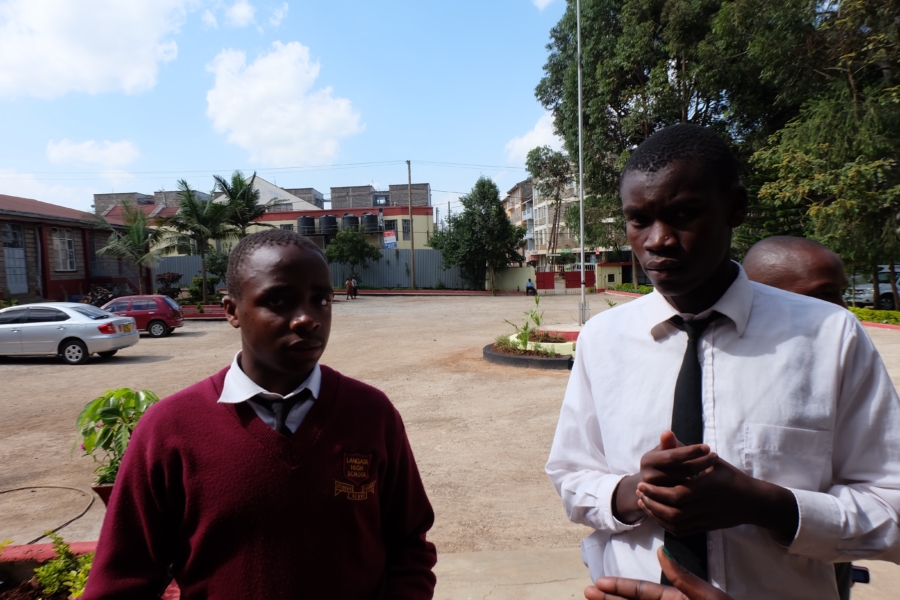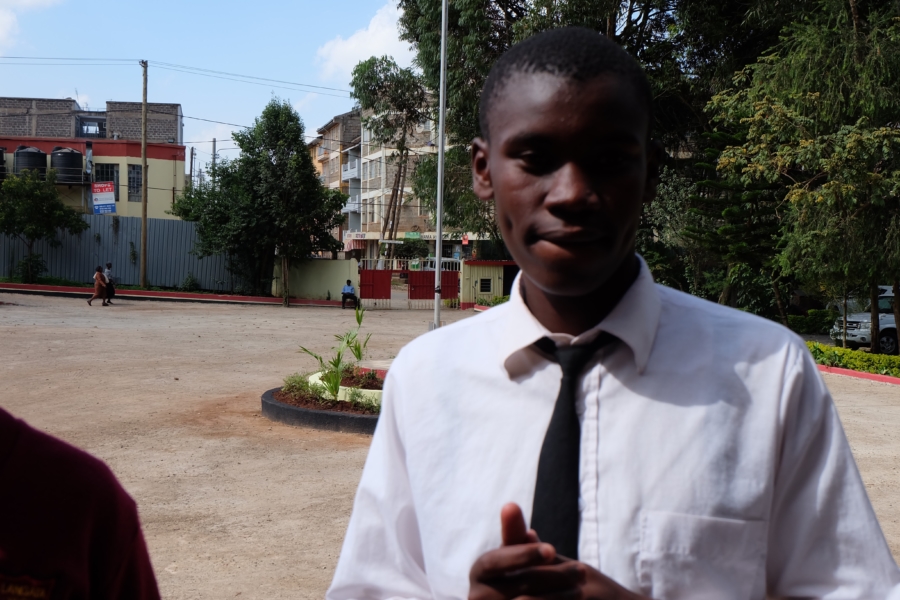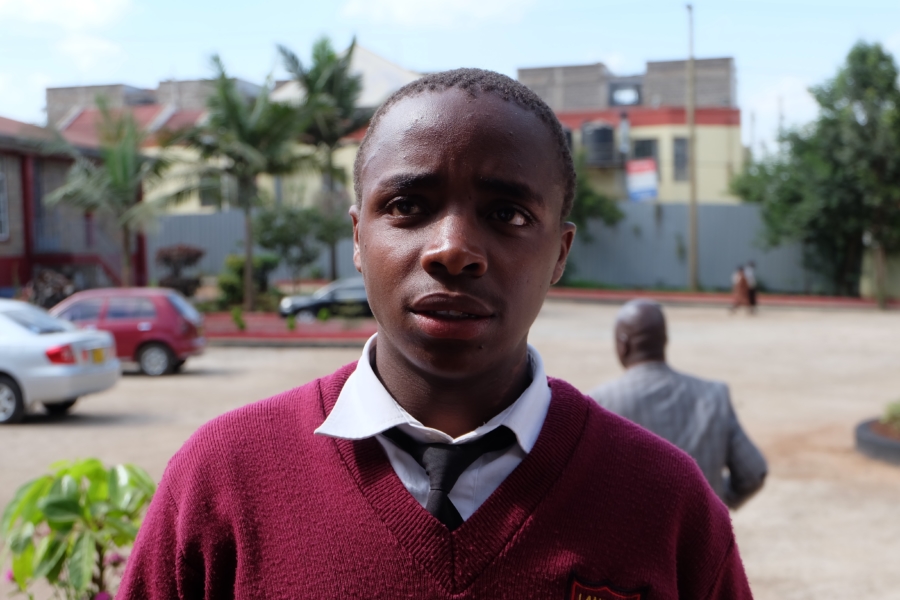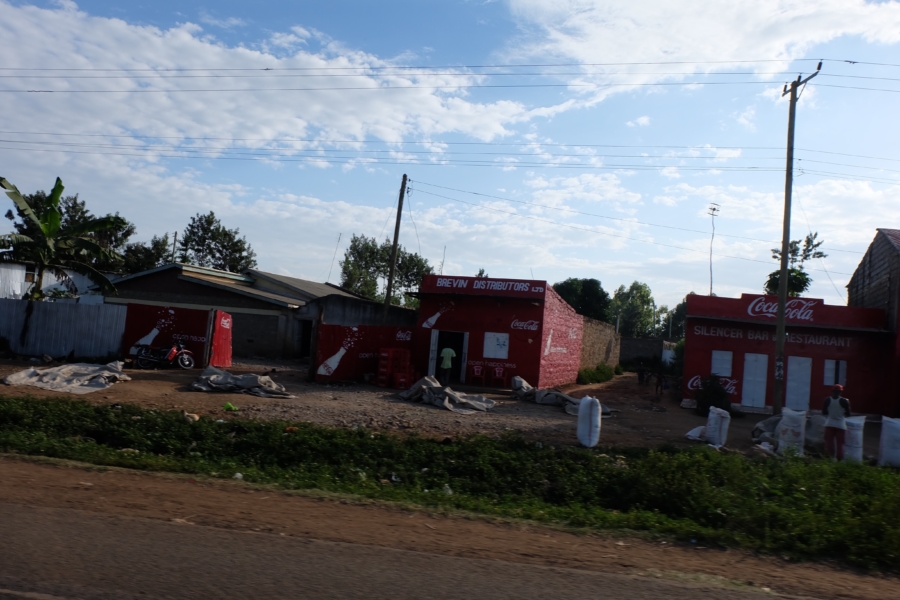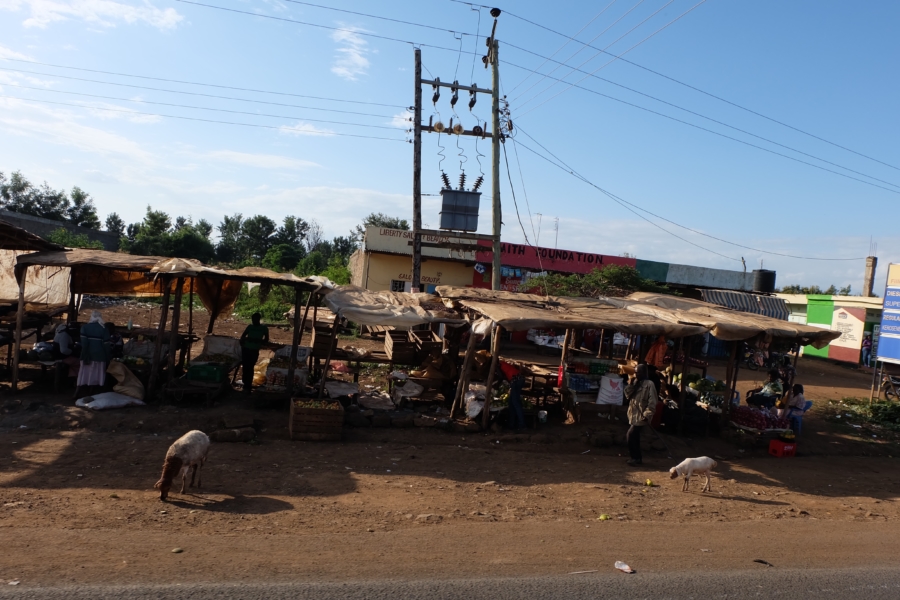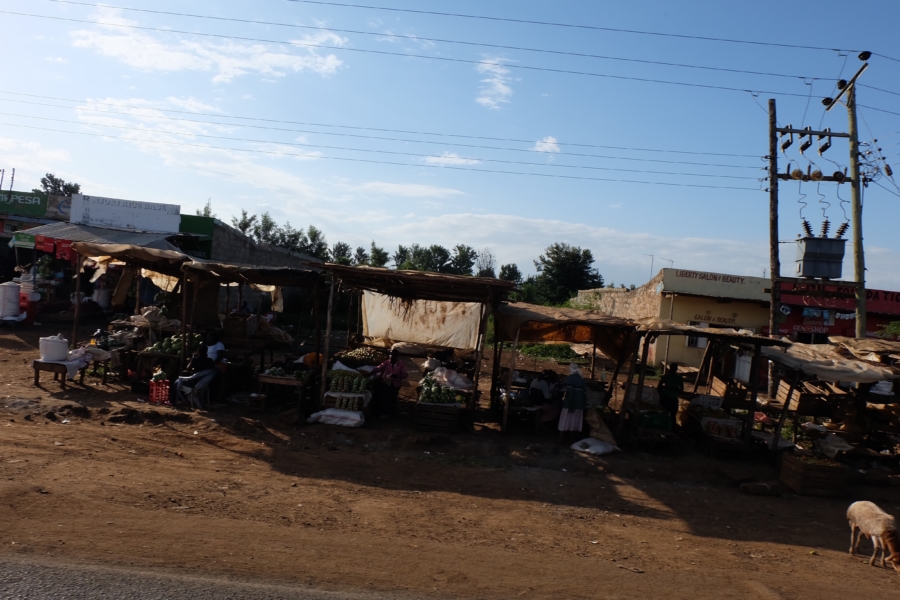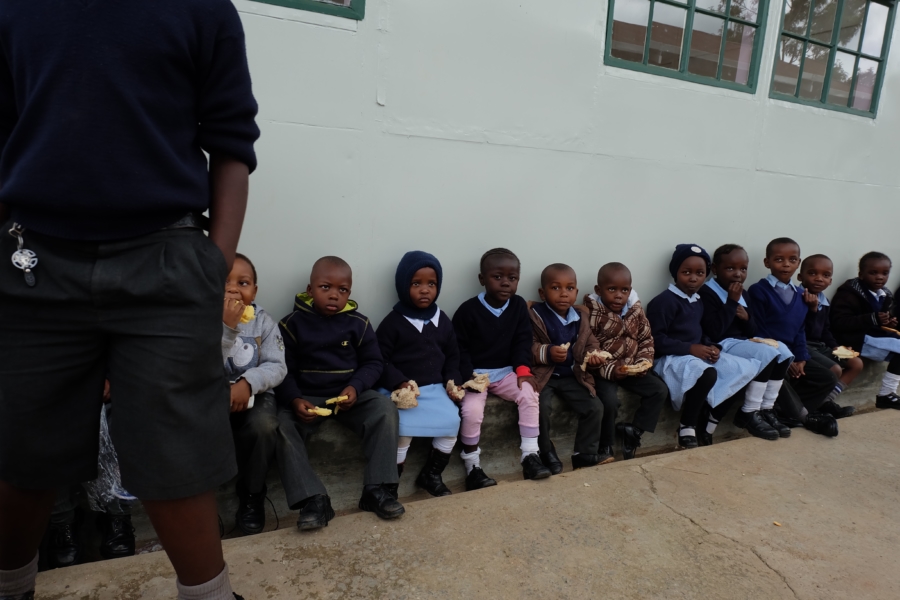The average American doesn’t have to think much about how he will provide an education to his children. Our public school system provides many of our children with an education courtesy of tax dollars, and we’ve grown to take it for granted. In Kenya, however, school is a privilege, not a right. If you can pay to send your children to school, they go. If not, then they’re almost certainly looking at a bleak future of poverty.
Msamaria is a community center for street children in the Karen and Kibera area of Nairobi, Kenya. Its primary school, St. Nicholas School, educates both boarding and day students, and Children Incorporated supports 21 of those students.
Msamaria is a community center for street children in the Karen and Kibera area of Nairobi, Kenya. Its primary school, St. Nicholas School, educates both boarding and day students, and Children Incorporated supports 21 of those students.
On our first day in Nairobi, we plan to visit Msamaria, and St. Nicholas’s director, Naomi, picks us up at our hotel. Msamaria is only about five kilometers away, but the ever-present Nairobi gridlock makes it seem much farther. When we arrive, I’m immediately struck by how beautiful and well-kept the property is. I learn that it was bought by the Anglican church in 1986 from an American who had built her home on the grounds— a home that’s still used for board meetings and other events. Each building on the compound is graceful, with nice tile floors and surrounded by lush greenery. It’s very clear from the first that Naomi and her staff make every possible effort to keep their program running smoothly. Considering the slums that we’ve already toured, this is a 180-degree turn for Nairobi street kids.
We meet our social worker, Caroline, who works closely with sponsored children, along with the headteacher, Phantes. They talk to us about St. Nicholas’s formal education (kindergarten through eighth grade) — admission is application-based, giving concerned community members an opportunity to recommend children from the Kibera slum. Caroline reviews the applications and makes home visits to get to know the children better. Some are orphaned, some are abandoned and all are struggling to survive. These are absolutely the most desperate children I’ve encountered on our trip.
For that reason, St. Nicholas School has found a way to eliminate fees and break down barriers for Nairobi’s poorest and loneliest children.
With a self-sustainability program unlike any I’ve seen in Kenya thus far, St. Nicholas supports its students by selling bottled water. Naomi, who is one of the sweetest, toughest, and most hard-working people I’ve ever met in my life, took out a loan to start a bottled water factory. They pump water directly from the property, using a borehole and a motorized water pump, and the $2,000 they make per month goes towards paying the staff, supporting the programs, and feeding the children.
If that weren’t impressive enough, Naomi tells us about the school’s agricultural program, which grows maize, carrots, and tomatoes. Selling some of those vegetables along with milk from cows on the property (and consuming the rest), the school is able to supplement its income and stay the course on its commitment to a no-fee structure.
Our favorite part of each visit is, of course, getting to meet the children themselves. Two Children Incorporated sponsored children speak to us excitedly about soccer and school. Both are orphans, both have grown up at Msamaria, and both were very interested in sending greetings and thanks to their sponsors.
It feels good to see sponsor support at work here at Msamaria. We’ve provided mosquito nets, items for personal hygiene, school supplies, and food. When students age out of St. Nicholas and begin attending a local high school, they will need funding to continue their studies. The more children we are able to get into schools like St. Nicholas, the more opportunity they have for an education and a chance at rising above poverty.
***
HOW DO I SPONSOR A CHILD IN KENYA?
You can sponsor a child in Kenya in one of three ways – call our office and speak with one of our sponsorship specialists at 1-800-538-5381, email us at sponsorship@children-inc.org, or go online to our donation portal, create an account, and search for a child in Kenya that is available for sponsorship.

